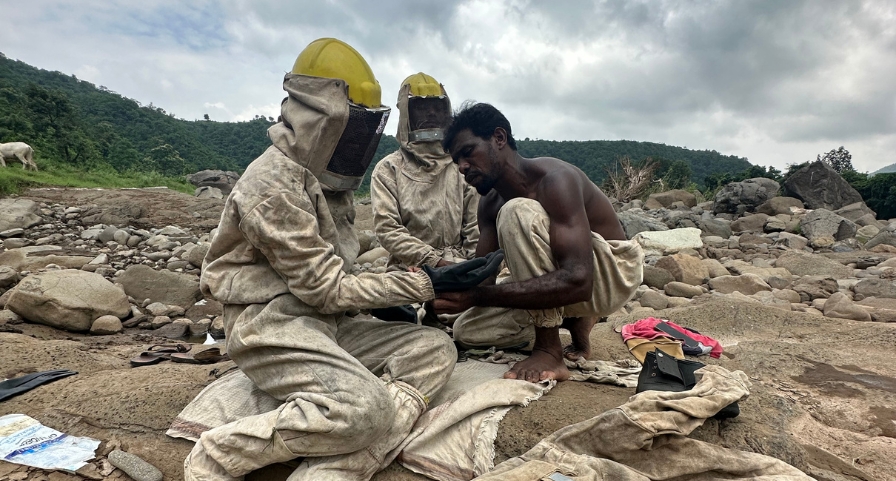Kishor Kumre, a 28-year-old Gond tribal of Aamrai village in Madhya Pradesh’s Betul district, made a living by collecting wild honey and setting up a make-shift shop on the roadside. Traders would stop by and buy bucketfuls of honey from him and even though Kumre bargained hard, he ended up selling the pure, wild honey for as little as Rs 75 per kg. An amount so menial that it did not justify his efforts at all.
Kumre’s predicament is not unique. Scores of tribals—Gond, Bhil, Kolam, Madia Gond, Korku, Halba—living in the border villages across Madhya Pradesh, Maharashtra and Chhattisgarh, are subjected to similar unfair terms of trade.
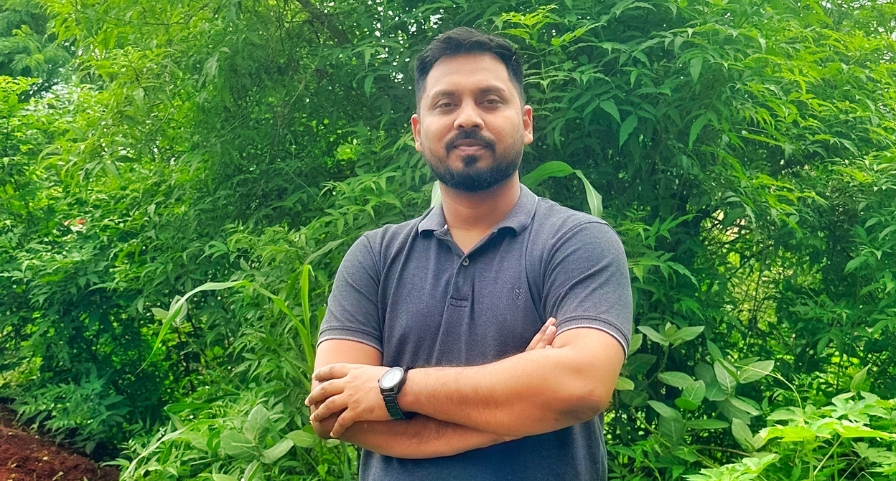
The livelihoods of these tribals primarily depend on collecting forest resources like mahua, tendu leaves, chironjee, and char. However, the availability of these resources is declining due to the loss of biodiversity and inadequate forest management policies. Even though landholding sizes are small, averaging 3-4 acres, and incomes remain below the national average, primitive agriculture is a significant source of livelihood.
Also read: Busier than bees: Sundarbans’ honey collectors
Finding a fair platform
Things changed when Tribe Grown Enterprises (TGE), a start-up founded by 32-year-old Bhavesh Ravindra Wankhade in 2020, stepped in. TGE now pays Kumre Rs 200 per litre for his wild honey. “Kumre had no access to a fair market or quality control and received no recognition for ensuring purity,” says Bhavesh. “Now, we collect honey directly from his village, eliminating long travel and tough negotiations,” he adds.
TGE aims at connecting indigenous tribal farmers with urban consumers and ensuring that tribal communities receive the value they truly deserve for their hard work and traditional knowledge. The mission is to improve their standard of living by reducing intermediaries in the supply chain and ensuring they receive a fair share of profits.
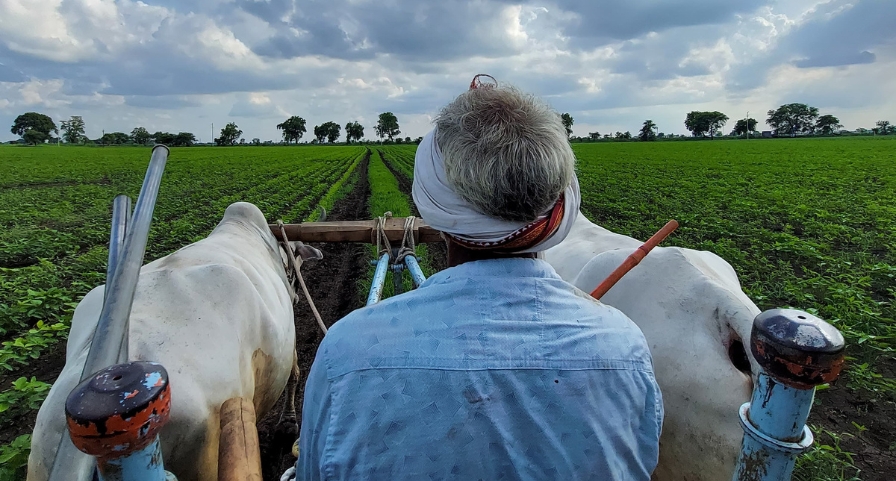
First, it identifies the potential products that small-scale tribal farmers can grow or collect, such as wild honey, turmeric powder, and desi cow ghee. Thereafter, it trains them and helps them improve production. “We teach them the basics of processing and finally, when the processed product reaches our warehouse, we do the final filtration and packaging before it reaches the customer,” explains Bhavesh.
So far, TGE has helped over 5,000 tribal families, living in isolated hamlets, find a market for their goods. “Over the years, this mission has evolved into something much bigger, touching lives in ways we never imagined,” says Bhavesh, an alumnus of the Tata Institute of Social Sciences.
TGE has so far collected 13,000 liters of milk to make ghee, 45 tonnes of honey, and 80 tonnes of turmeric powder. The ‘start-up’ has been approved for a fund of Rs 23 lakh under the ‘Raftaar’ component of the National Agricultural Development Scheme.
With a website in place, TGE has reached a turnover of Rs 90 lakh and has even started exports to countries like Dubai, Singapore, the US, and Japan. “Our upcoming product range includes cold-pressed oils, a breakfast range, multigrain millet atta, and more. We want to encourage healthy eating,” informs Bhavesh.
Also read: Meet Sukhpal Kaur, the bee queen of Punjab
Winds of change
The impact is evident in villages like Gahal in Madhya Pradesh, where 24-year-old Rahul Dai, a hardworking Korku tribal who once depended solely on honey collection for survival, has now acquired skills to create high-quality A2 bilona ghee (clarified butter), which sells for Rs 2500 per kg.
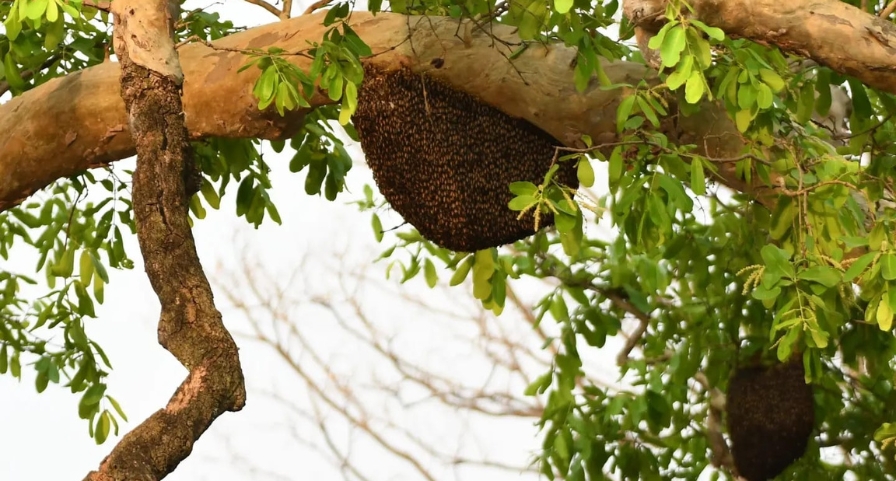
Similarly, 51-year-old Chatru Kumre, a Gond tribal from Kinni in Maharashtra’s Osmanabad district has diversified into producing wild moringa powder and turmeric.
Bhavesh highlights that TGE’s impact goes beyond income generation: “Tribal families no longer feel marginalised. They are eager to increase production and improve quality while integrating into larger markets.”
The produce originates from isolated regions that have not been affected by modernisation and that is their USP.
The forests, which are endowed with a wide variety of flora and fauna, are the source of the wild honey. Turmeric is cultivated on soil that is free from artificial fertilisers and pesticide contamination. The milk used to make ghee comes from cows that graze freely in forest regions and give nutrient-rich milk.
Additionally, the items undergo little to no processing, which eliminates the need for chemicals and preservatives.
Sustainable practices and quality assurance
TGE ensures sustainability by providing honey collectors with protective suits and distributing seeds of trees like wild tamarind, Arjuna, Mahua, and custard apple to encourage plantation. While TGE mostly sells honey to wholesalers, it sells online too. The multiflora one is priced at Rs 700 per kg and the uniflora costs Rs 2,000 per kg.
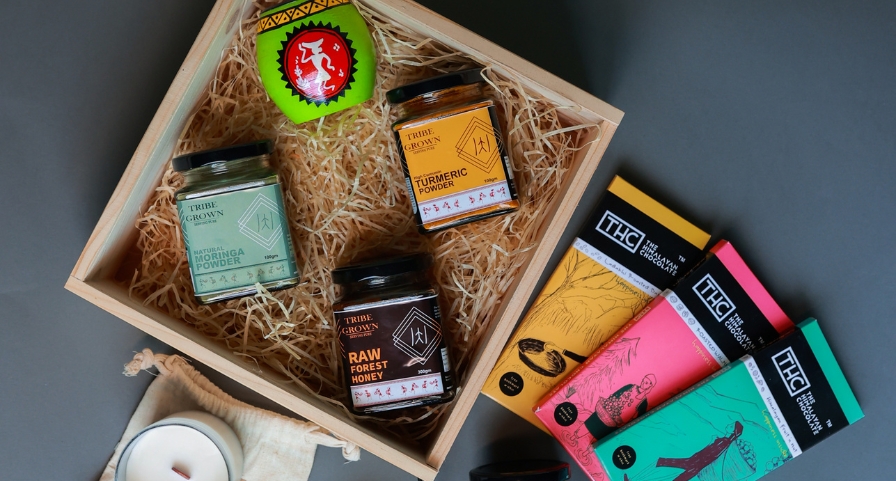
TGE’s impact is also visible elsewhere. Bhavesh’s wife, Pallavi Sagar Kandalkar, the CEO of Tribe Grown, recently won the Sustainability Award at Innova Europe Venture Day, highlighting TGE’s impactful model of sustainable and ethical business.
Also read: Chhattisgarh tribes taste success raising honeybees
The lead image on top shows indigenous tribals wearing bee protection suits before collecting honey. (Photo courtesy Tribe Grown Enterprises)
Hiren Kumar Bose is a journalist based in Thane, Maharashtra. He is also a weekend farmer.

